Empower Yourself to Save Money on Prescription Drugs!
It’s no secret that prescription drug costs are out of control in the United States. Since 2000, drug costs have risen by an average of 10 percent every year–more than 3 times the rate of inflation during this period. Today, Americans pay more for their medications than the citizens of any developed country in the world.
The unfortunate–and sometimes tragic–results of skyrocketing drug prices include consumers forgoing needed medications because they simply can’t afford them. This is particularly evident in today’s struggling economy.
The problem of high drug prices most directly affects the 65 million Americans who don’t have prescription drug insurance. But even those Americans who have insurance are seeing co-pays and coverage gaps increase dramatically – pushing many to the financial breaking point when an unexpected health catastrophe strikes.
We can’t wait for our government to bail us out of this predicament. We can’t expect our employers or insurance providers to come to our aid, either. The key to paying lower prices for your medications–prices you can afford–is to empower yourself. Become a savvy consumer. Be an opportunistic consumer and learn crucial tips to save money on your prescription drugs.
1.) Talk Openly with Your Doc
It may seem uncomfortable to disclose your personal situation to your physician. You may feel embarrassed and prefer that your personal finances remain private. But the reality is that your doctor may know of ways that you can obtain your medication without breaking your wallet. Doctors are privy to a wealth of information in the medical field that patients wouldn’t know about. Many times, physicians are thinking solely about which medication will be best for you to take and some doctors have been influenced by Big Pharma sales reps.
And unless you speak up they may just prescribe the most expensive medication on the market. If you take a breath and simply be frank and honest with your doctor, he/she really does want to help you. The fact is that only 80% of prescriptions that are prescribed actually get filled–doctors would rather prescribe something that you can afford so you will take it and get well than have you do without entirely. Your doctor may know of other alternative medications that are much less expensive or alternatives other than medication to help you. But he/she can’t help if you don’t ask.
2.) Ask for a 90-Day Supply
Just like other products that you purchase, medications are cheaper if they are purchased in larger quantities. Ask your physician if he can write your prescription for a 90-day supply rather than a 30-day supply and buy your medications in bulk. You will save in bulk on prescriptions just like any other product that you purchase.
3.) Ask for Samples at Every Visit
Every doctor’s office generally has a “sample closet”. Pharmaceutical companies will bring thousands of dollars worth of samples of all varieties of medications, especially newer medications, and give them to doctors as an incentive to prescribe their medication versus their competitor. Before you purchase a medication that won’t be effective or that your body won’t tolerate, ask your physician for samples for you to try. Also most doctors don’t mind helping you out–especially if you’ve been candid with them about your financial information.
The Critical “7 Year” Tip Most People Don’t Know About
- Never use a drug until after it’s been on the market for at least 7 years. Almost all new drugs are tested on a relatively small number of people before being released, and serious adverse effects and life-threatening drug interactions may NOT be detected until the new drug has been taken by hundreds of thousands of people. A large number of new drugs have been withdrawn from the market within their first seven years after their release.
- Also, new warnings about serious new adverse side effects and reactions have been added the labeling of a number of drugs, usually within the first seven years after the drug’s release date. Using this simple rule-of-thumb will help you save money and maybe even you or a loved ones life!
4.) Take Preventive Measures
Due to the massive changes in health care because of the Affordable Care Act, almost everyone can take free preventive tests that are available like, colonoscopies, mammograms and vaccines. Seniors can also take free yearly visits and health screenings through Medicare so they catch medical conditions early on when they are easier to treat. are a requirement for your insurance coverage. Doing this will help you stay healthier and decreases your need to take multiple medications.
5.) Examine Your Prescription Formulary
Your insurance covers certain medications with varying co-payments. Regularly check with your insurance coverage and compare the medications. Many medications serve the same purpose and, even though they are entirely similar in their purpose, may be on different formulary co-payment schedules. One medication may cost you five dollars as a co-payment while another may cost you seventy-five. Be informed and check the policy medication list regularly.
If your physician decides to prescribe a new medication, ask him if there are other similar medications that you can check against your formulary list for price options. Most physicians are happy to do so–they want you to take your medication and stay well. If they know that money is an option, most are happy to help you determine an option that works for you. Explain to your doctor that you are asking for choices so that you can check your insurance policy–physicians are generally thrilled when patients become proactive and involved in their own health care.
6.) Split Your Pills
In certain circumstances, you can ask your physician to prescribe your medication at twice the strength that he intends for you to take. If the actual pill is one that be split, you can take half of the pill at each dose. With the same number of pills, you can double your medication supply for the same co-payment.
7.) Use eDrugSearch.com to Save Up to 90%
Medications are a consumer product and like any consumer product, each store will have its own price. Shop around various pharmacies, mail order pharmacies and other online sources and compare prices on 30-day supplies versus 90-day supplies. For online medications, eDrugSearch.com is the definitive source for freely comparing drug prices among licensed online pharmacies.
Since 2006, millions of Americans have turned to eDrugSearch.com for help with prescription assistance — slashing the cost of their prescription drugs. eDrugSearch.com is a FREE an easy-to-use search engine that locates the lowest prices from various safe and licensed online pharmacies–instantly saving consumers up to 90% on their medication costs.
Safety Tips
- Whether your ordering online or from your local pharmacy its important to keep all of your prescriptions at the same pharmacy so they can insure that you don’t experience any adverse drug interactions.
- If you aren’t able to find what you need at the same pharmacy, then at least tell the different pharmacists about what other medications you take so they are aware.
- And don’t ever take a medication for the first time without discussing it with your pharmacist first. While physicians are trained as medical professionals, pharmacists are trained entirely in chemical compounds and pharmaceutical actions and reactions. Many know them by heart and can tell you what side effects to expect as well.
- Anytime you begin a new medication, be sure to track any changes in your health in a journal daily to share with the physician during your routine follow-up.
8.) Ask for Generics
Generic medications can save you a fortune on your medications–usually around 80-85%. Brand-name medications are no different than brand names of any other consumer product. Many times, apothecaries will carry a generic brand of a medication that is identical in its formulation for a fraction of the cost of the brand name. Generics are no different.
9.) Clip Online Coupons
Search online for discounts, coupons and free samples of your medications–many medication manufacturers will heavily discount your first 30-day supply or can be completely cost-free. Popular prescription drug coupon sites include OptimizeRx.com and InternetDrugCoupons.com
10.) Watch Your Weight
Believe it or not, you don’t need a pill for every ill. The most important thing that you can do to maintain your health is to avoid becoming overweight. Obesity causes many different chronic diseases – heart disease, diabetes, and many others. Becoming obese puts extra strain and pressure on muscles and joints, causing aches and pains that can become chronic. By losing a few pounds, you are only helping yourself in the long run. Losing five or ten pounds will not only help you to look and feel healthier, but you will also improve cholesterol levels, blood pressure and chances of becoming diabetic.
11.) Examine Your Part D Plan
Each year, you are given an opportunity to reexamine your Medicare Part D options. During this one open enrollment time each year, take advantage of plans that may pay additionally for prescription costs. The plan may have changes that weren’t there the previous year. By comparing costs of your medical expenses and Medicare Part D premiums, you can insure that the plan you choose is the best and most economical plan for you.
12.) Get “Extra Help” Through Medicare
Many citizens who qualify for Medicare and who live in a limited budget need to check with a government program called Extra Help. This program assists many senior citizens and citizens with financial burdens with the costs of prescriptions. The maximum amount of assistance available from this program is $4,000! That’s $4,000 off of your prescriptions costs that you could spend on other necessities.
13.) Check State Pharmaceutical Assistance Programs
Many states offer pharmaceutical assistance programs to low-income individuals provided by pharmaceutical companies or other similar programs. Use Medicare.gov to quickly check if there are of any prescription assistance programs in your state.
14.) Patient Assistance Program Resources
If you can’t find any programs that provide assistance or you don’t qualify for them, you still may be eligible to receive your medications at little or no cost. Virtually all of the major drug companies have patient assistance programs, although each company has different eligibility and application requirements.
-
Partnership for Prescription Assistance. The Partnership for Prescription Assistance (PPA) is an initiative by pharmaceutical companies to help qualifying patients who lack prescription coverage get the medicines they need through the public or private program that’s right for them. The PPA Web site includes a searchable directory of drug company assistance programs.
-
RxAssist. RxAssist offers a comprehensive database of patient assistance programs offered by pharmaceutical companies, which offer free medications to people who cannot afford to buy their medicine. The site also offers practical tools, news, and articles for healthcare professionals and patients can find the information they need. RxAssist was created by Volunteers in Health Care, a national, nonprofit resource center for health care programs working with the uninsured.
-
NeedyMeds. NeedyMeds is a 501(3)(c) non-profit organization with the mission of helping people who cannot afford medicine or healthcare costs. The information at NeedyMeds is available anonymously and free of charge.
15.) Stop Adding More and More Drugs
Your physician, with the best intentions, will sometimes prescribe one medication for each ailment or condition that you suffer from. If one doesn’t work, they may add another. You may actually continue adding medications until one works. If this happens, discuss cutting some of the other medications out one at a time. However, only do this with your physician’s assistance–it is dangerous to simply stop taking certain types of medication. You have to dose down off of them.
16.) Store Your Medications Properly
Many medications need to be refrigerated in order to be effective. Others may require a dry, warm storage place. If the medications are not stored properly, they can become ineffective. The properties of the medication that make it perform as expected can become ineffective if not stored under appropriate conditions.
17.) Try Over-the-Counter Medications
There are situations where a prescription is not warranted. Discuss this with your pharmacist first, but over-the-counter medications cost a fraction of the price of the prescription. An excellent example is prescription Ibuprofen; written at a dose of 800 mg per pill, the over-the-counter Ibuprofen is the exact same medication at a lower dose. You could just take four of the 200mg Ibuprofen and save a load of money in the meantime. Compare prices between the two. Because your insurance won’t cover the cost of over-the-counter medications, it may be more cost-effective to pay the co-pay and purchase the prescription.
Also due to all the direct-to-consumer (TV) advertising many of us tend to immediately ask our doctor for a prescription when we have seasonal allergies, occasional insomnia or minor heartburn. We tend to think that prescription drugs must be stronger than OTC medications–and of course we all want the strongest medicine for our condition. The truth is, in many cases OTC medications work just as well–and don’t require paying for a high-priced prescription drug and doctor’s visit.
18.) Check Out GoodRx.com for Local Prices
-
GoodRx.com website. The GoodRx website provides a wide variety of assistance–financial values that are a fraction of the pharmacy price, a question/answer section, a “pill identifier”–if you find a pill and don’t know what it is, you can look it up here- and a variety of other resources. Don’t go to the pharmacy until you’ve checked with GoodRx.com first!
-
GoodRx Mobile App. Access the same information from GoodRx.com by installing the mobile app onto your mobile phone or other device. You may be on the go or running errands and realize that you need to pick up a medication refill; you can quickly and easily check the price with your GoodRx.app without having to go all the way home.
Please SHARE these valuable money-saving tips with your friends & family!
Have you tried any of these prescription drug money-saving tips?
Please take our short prescription drug money saving quiz below.

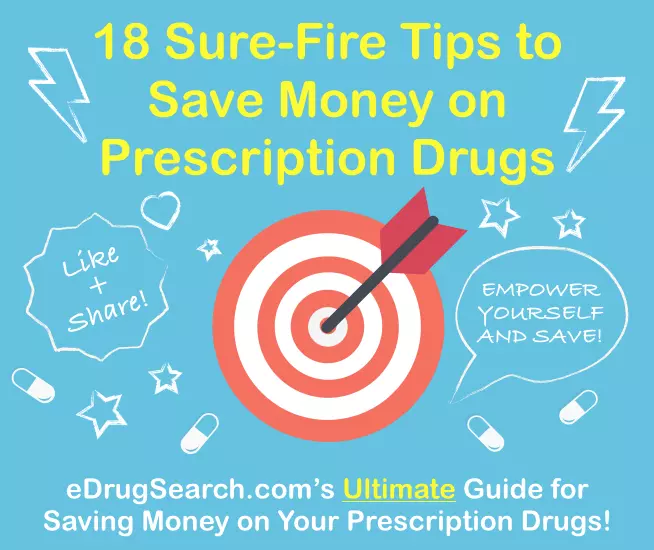
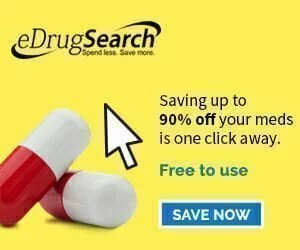
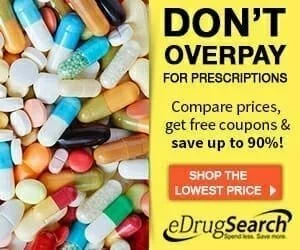
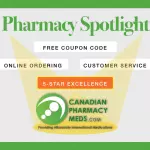

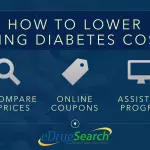
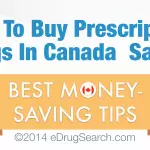





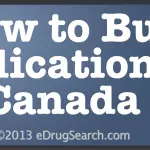


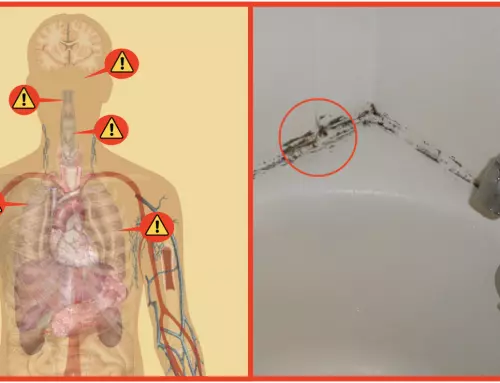
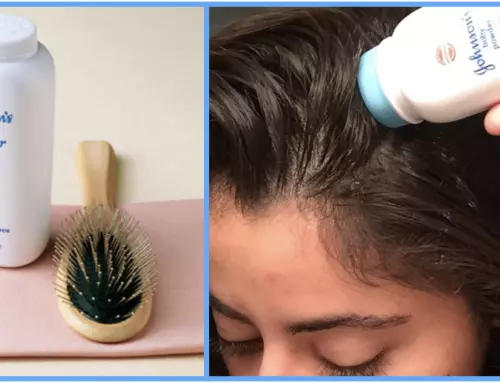
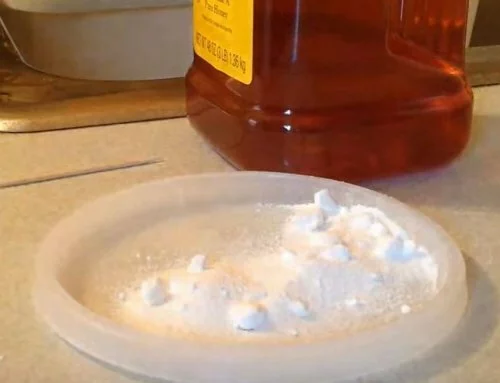
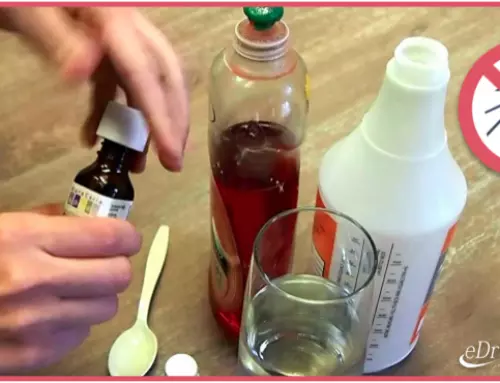
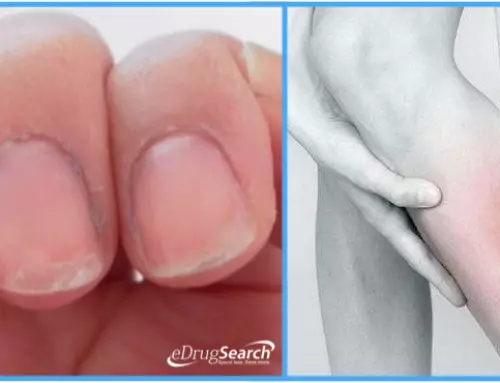




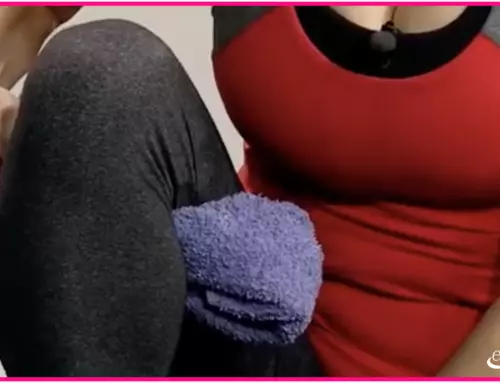

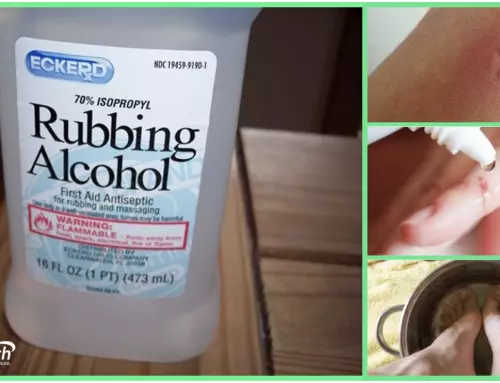
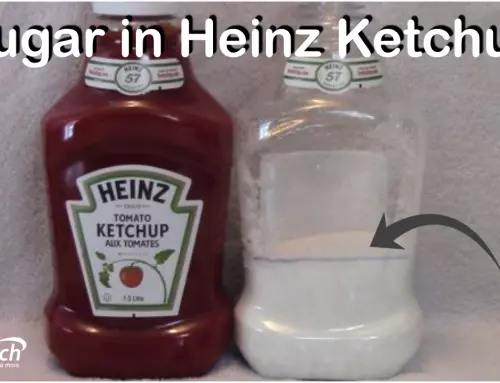

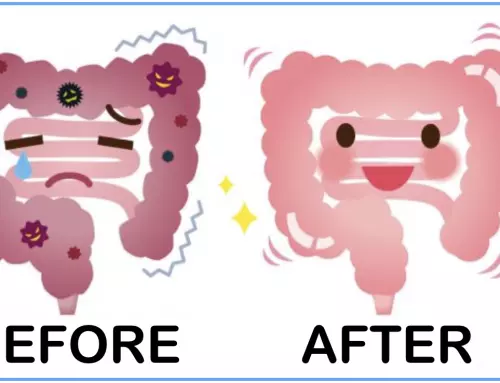









Leave a Reply
Be the First to Comment!